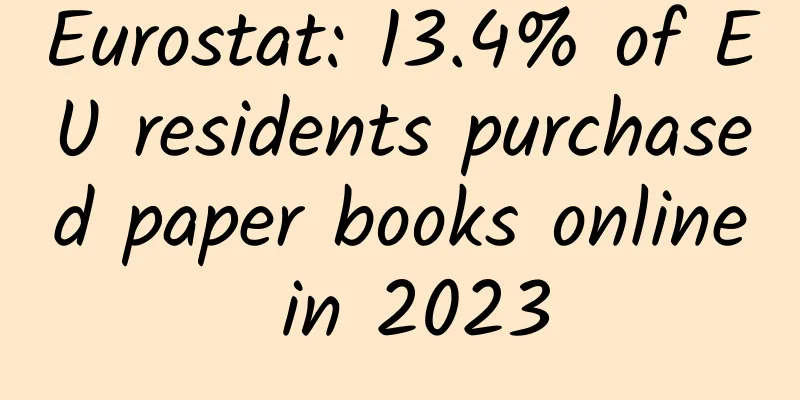Eurostat: 13.4% of EU residents purchased paper books online in 2023

|
In 2023, the proportion of EU residents purchasing print books, magazines or newspapers online will still be significantly higher than e-books, online magazines or online newspapers. In 2023, 13.4% of EU residents purchased a print book online in the last 3 months. This is a slight increase from 2022 (12.7%), but still lower than the share in 2021 (14.5%). The share of the population buying e-books, online magazines or online newspapers online is about half that of those buying print books. In 2023, 7.2% of EU residents bought e-books, an increase from 6.6% in 2022, but stable compared to 2021. According to the report, in the first three months of 2023, the Netherlands had the highest share of online paper book purchases (23.5%), followed by Luxembourg (22.2%) and Ireland (21.1%). Cyprus (1.4%), Latvia (2.9%) and Bulgaria (3.7%) had the lowest shares. In the same year, the highest e-book market share was in Denmark (22.0%), the Netherlands (21.6%) and Ireland (16.9%), while the lowest was in Cyprus (0.6%), Bulgaria (2.0%) and Romania (2.2%). Denmark and Finland were the only two countries where more people bought e-books than paper books in the three months before data collection. |
<<: Where is the fastest growing e-commerce market in the world?
>>: Piper Sandler: Spring 2024 Teen Report
Recommend
Complete list of Chinese medicine effects
There are many diseases in life that require the ...
The efficacy and function of black sesame
Traditional Chinese medicine has a history of tho...
Once information falls into a "black hole", will it really disappear into thin air?
The Massachusetts Institute of Technology reporte...
Can wolfberry replenish blood?
In daily life, we often find wolfberries in some ...
There will be significant rainfall in North China, Huanghuai, Northeast China, etc. Beware of sudden rainstorms in Jiangnan and South China! Pay attention during the rainfall →
The Central Meteorological Observatory predicts t...
The efficacy and function of white lentil skin
White lentil bean skin is one of the common tradi...
What are the differences between Astragalus and Astragalus?
Speaking of Astragalus membranaceus and Astragalu...
What are the functions of wolfberry?
I believe that many of my friends have the habit ...
The efficacy and function of red Schefflera arborvitae
In modern life, everyone is very familiar with va...
Does Schisandra chinensis have great beauty effects?
Since ancient times, Chinese medicine has always ...
The 2023 Turing Award is out! Why is the "randomness" of computers so important?
Last night, the Association for Computing Machine...
The efficacy and function of Yunnan frozen green leaves
Nowadays, our living standards are constantly imp...
Deadly drowning! The number one killer of children! How to identify the early signs of drowning?
The World Health Organization's report on dro...
The efficacy and function of Niu Nose Suppository
Ox nose suppository is a kind of traditional Chin...









